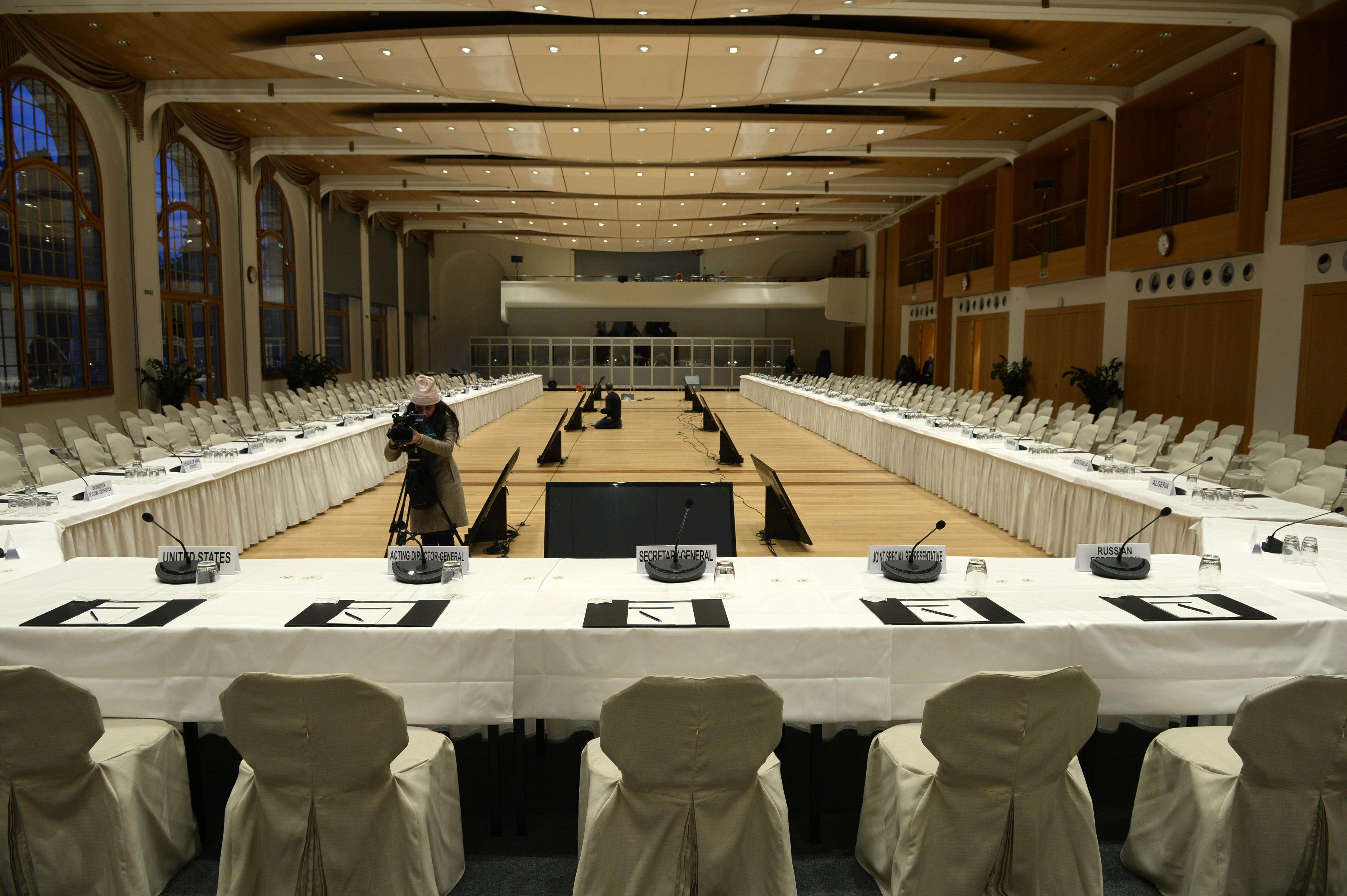The Syria peace talks being held in Geneva this week have gone from zero to “in disarray” in record time, with a sent-then-rescinded invitation to Iran, the Syrian delegation delayed in Athens when Greek authorities refused to provide their plane with fuel, and—most seriously—the release of a new report providing extensive documentation of torture and the “industrial-scale” killing of detainees by Bashar al-Assad’s regime.
The report (includes graphic photos) is the work of three attorneys who served as prosecutors in war crimes tribunals for Sierra Leone and Yugoslavia and is based on interviews with “a military policeman who worked secretly with a Syrian opposition group and later defected and fled the country,” taking thousands of government photographs and documents with him.
According to the report, the documents show the killing of about 11,000 detainees. The authors claim that there is enough evidence to show the “systematic torture and killing of detained persons by the agents of the Syrian government,” and that such evidence would be enough to support findings of war crimes and crimes against humanity against the Syrian government.
Compelling as the report—which was supported by the Qatari government and reported by the Guardian and CNN today—may be, Syrian government officials are still unlikely to be charged with war crimes by the International Criminal Court, as Syria is not a party to the court. Non-parties can be referred to the court by the U.N. Security Council, but that’s unlikely given Russia’s veto.
But the gruesome findings may certainly effect the talks at Geneva, or at least the international perception of them. Since the chemical weapons deal was reached last fall, and the rise to prominence of rebel groups linked to international terrorism, there’s seems to have been a shift in the stance of Western governments toward the view that an eventual settlement in Syria will likely involve Assad remaining in power.
If the report’s findings are corroborated, it’s certainly a reminder of just how big a moral compromise that position is, and just who they’re dealing with in Geneva this week.
